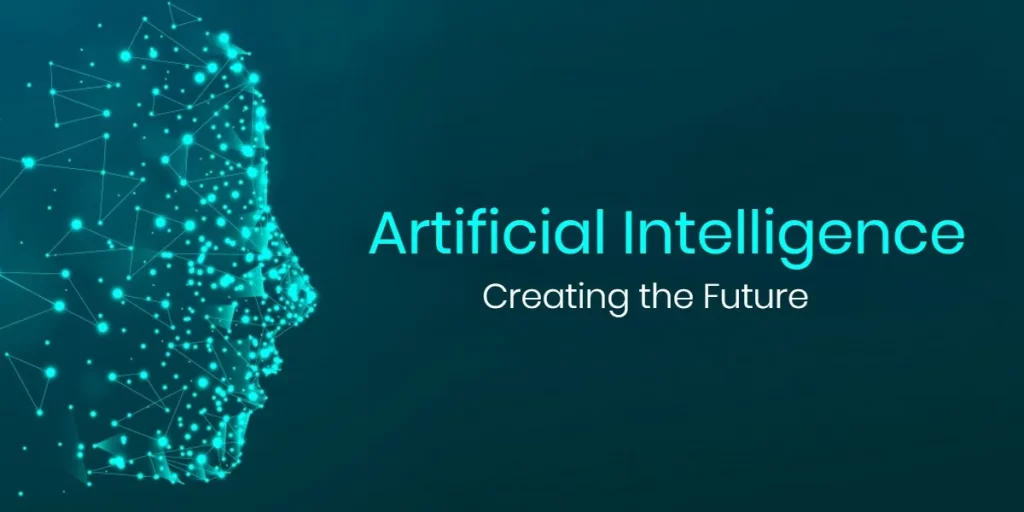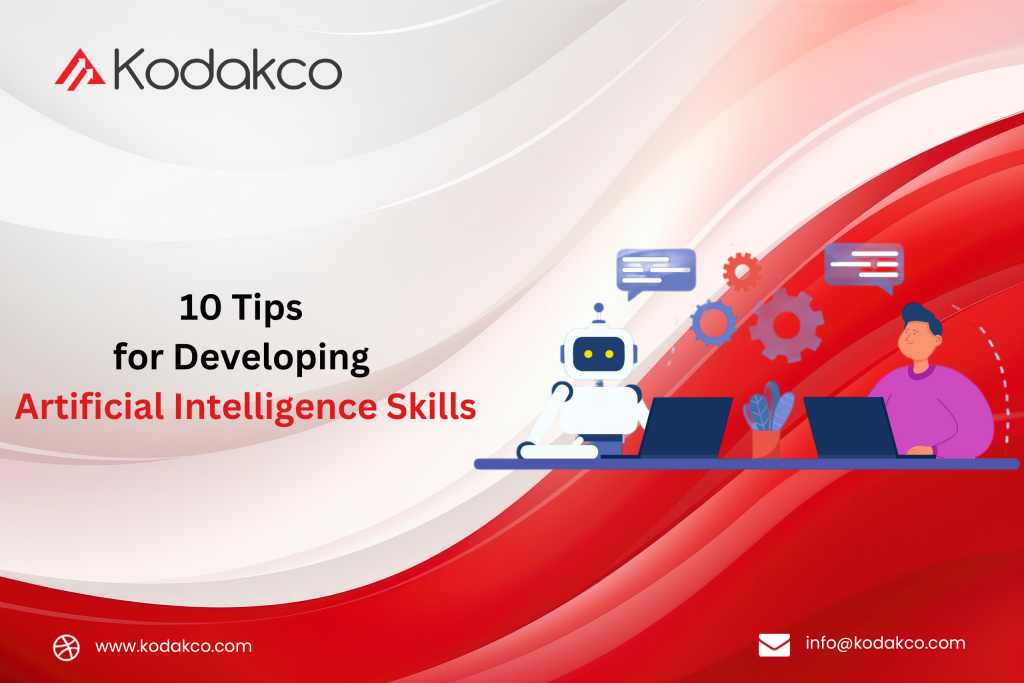Have you ever wondered why similar content and information pop up on your social media feed or online whenever scrolling or consuming content? This is what artificial intelligence does in today’s real-life scenario. From AI knowing your favorite video games to knowing your favorite character in that game or your favorite moves in that game. AI knows everything! Developing Artificial Intelligence Skills is all about making machines and gadgets smart enough to help us in our daily lives personal as well as business. You can become an expert in Artificial intelligence by learning the required skills from Henry Harvin courses and Books on Artificial Intelligence.
What is Artificial Intelligence?
Artificial Intelligence is nothing but a branch of Computer Science that deals with large amounts of complex data to solve problems and derive solutions, performing multiple tasks that used to require human intervention and intelligence. But, it has become humanly impossible to process large numbers of data manually. Thus AI has gained significant importance in recent times, particularly over the last two decades and the reason why developing artificial intelligence skills has become very important today.
Why is Artificial Intelligence Important?

Reasons why learning AI Skills has become important in today’s day and age and is constantly gaining importance, also it continues to evolve at a rapid pace because it is transforming industries, creating new opportunities, and solving complex problems of human and business organization
- Provides new career opportunities and advancement
- Brings Change and Innovation
- Helps in Improving Efficiency and Productivity
- Solving Complex Problems
- Enhancing Customer Experiences
- Enabling Scientific and Medical Advancements
- Addressing Global Challenges
- Enhancing Security
- Fostering Collaboration and Communication
- Ensuring Future Relevance
Whether you are a non-technical student or an experienced developer looking to expand your knowledge and build a successful career in Artificial intelligence as the demand and need for AI professionals continue to rise, developing AI skills has become even more important than ever.
Here are 10 Tips to Help You Develop Your Artificial Intelligence skills
Artificial Intelligence Skills for Non-Technical Aspirants.

1. Start learning the Basics of Artificial Intelligence-
As a non-technical aspirant who wants to build a career in this field, starting with the basics like Learning common AI terms- machine learning, neural networks, natural language processing, deep learning etc can help you to kick-start your learning journey. You can enroll on basic/free courses offered online by reputed trusted institutes and also go through the basic/ fundamental books on AI.
2. Developing data literacy-
Data literacy mainly involves gaining knowledge about advance-complex data that is involved in work on a day-to-day basis at the workplace. Someone who wants to develop a career in these fields needs to have a flair knowledge of concepts and applications like mean, median, variance, correlation, data collection, cleaning, and pre-processing using tools like Microsoft Excel, and Google Sheets. You also need to represent data in a more constructive format to the higher management thus learning tools like Tableau or Power BI to create visual representations of data is crucial. Also, these tools are user-friendly and don’t require deep programming knowledge.
3. Leveraging applications like No-code or low-code platforms-
If you are from a non-technical field or background learning tools like Google Auto ML can help you to build and deploy machine learning models without needing to write code. Other tools similar to Google Auto ML are Teachable Machine by Google: An easy-to-use tool for creating machine learning models for image, sound, and pose recognition and Microsoft AI Builder: A low-code platform that integrates with Microsoft Power Platform to build AI models.
4. Using AI-powered applications-
Since most of the work that is dealt with is customer-centric using AI-powered applications like Salesforce, HubSpot, Hootsuite, and Mailchimp can help with predictive analytics and customer segmentation and for automating and optimizing marketing campaigns.
5. Learning basic computer language and programming-
It can be optional but yet beneficial if you learn. learn Programming Fundamentals like Python which is widely used in AI. There are numerous free resources and beginner courses available to learn the basics of programming.
6. Understanding AI Ethics and Governance-
Getting yourself familiarized with AI ethics and governance is very important from the standpoint of customer privacy and safety it can have several repercussions if not followed like- privacy violation, discrimination, or even physical harm in the case of autonomous systems, AI systems can increase biases present in the data, leading to unfair treatment of certain groups. and many such consequences. Thus, Learning about the ethical implications of AI, which includes issues like bias, privacy, and transparency is very crucial.
7. Participate in AI Communities and Events-
Joining local AI meet-ups and webinars, and online forums such as AI-related subreddits or LinkedIn groups. can help you to connect with like-minded people and gain the latest trends and knowledge in your field, also participate in AI hackathons and workshops designed for beginners to get hands-on experience and network with professionals in Artificial intelligence.
8. Focus on Domain-Specific AI applications-
Learn how AI is being used in different industries like in healthcare industries how AI helps with diagnosis, treatment plans, and patient data analysis, Understand AI applications in finance and how it is used for fraud detection, algorithmic trading, and risk management, Also how it is revolutionizing marketing through customer insights, personalized content, and automated campaigns.
9. Keep Learning-
With the latest advancements in technology, changes are happening all the time so keeping yourself updated with the latest changes and trends will keep you one step ahead of the competition stay informed, and follow AI news, blogs, articles, and podcasts.
Also as you become more comfortable with the basics, consider taking more advanced courses or certifications in AI and machine learning.
Artificial Intelligence Skills for Technical Aspirants

- Master the Mathematical Foundations- If you love learning maths get clear on core mathematics concepts like linear Algebra, Calculus, Probability, and statistics which are important for understanding concepts like deep learning, machine learning, and data science.
- Gain Proficiency in Programming Languages and Tools- The most widely used languages in AI are Python, R and C++.
- Understanding Machine Learning Algorithms- Learn Concepts like Supervised Learning, Unsupervised Learning, and Reinforcement Learning.
- Delve in Deep learning concepts like- Neural Networks
- Gain practical knowledge and work on Real-life projects like participating in Kaggle competitions so that you can apply machine learning and deep learning techniques and theoretical knowledge to real datasets and problems. Also, try contributing to open-source AI projects on GitHub to gain practical experience and collaborate with the AI community.
- Creating your own AI dummy projects like developing an AI application that interests you like building a chatbot can help you gain practical knowledge
- Documenting your Work and creating a portfolio of the work done on platforms like GitHub or your website can help you showcase your Artificial Intelligence skills to potential clients/employers.
- Once you have gained a good knowledge of the basics of AI try exploring more advanced concepts in Artificial Intelligence
Learn Artificial Intelligence Skills from Henry Harvin

If you are planning to pursue a career in Artificial Intelligence or want to switch careers in AI to build a lucrative career soon. Henry Harvin has got your back! It provides an amazing Certification Course in Artificial Intelligence that can help you to fast track your Success, learning and gain knowledge from Basic to advanced concepts in less time. It provides placement support and internship opportunities for people starting for the first time in this field. and covers important concepts like- Deep Learning, Algorithm Prediction, Data Visualization, Machine Learning, Story Telling, Data Wrangling
Conclusion
Developing AI skills as a non-technical or technical aspirant is entirely doable with the right approach and resources. By starting with the basics, leveraging no-code tools, gaining data literacy, understanding ethical considerations, and continuously learning, non-technical students can successfully integrate AI into their skill set and open up new career opportunities. And Eventually gaining more advanced concepts and knowledge in AI learning. Consistency and discipline can help you to build a successful career in this field.
FAQs
Yes, Many companies do offer AI internships to help students gain experience.
Machine learning is a must and a key component of many AI roles
AI jobs are well-paid jobs due to the high demand in this field
Start-ups often seek AI talent to innovate and drive growth.




I don’t think the title of your article matches the content lol. Just kidding, mainly because I had some doubts after reading the article.